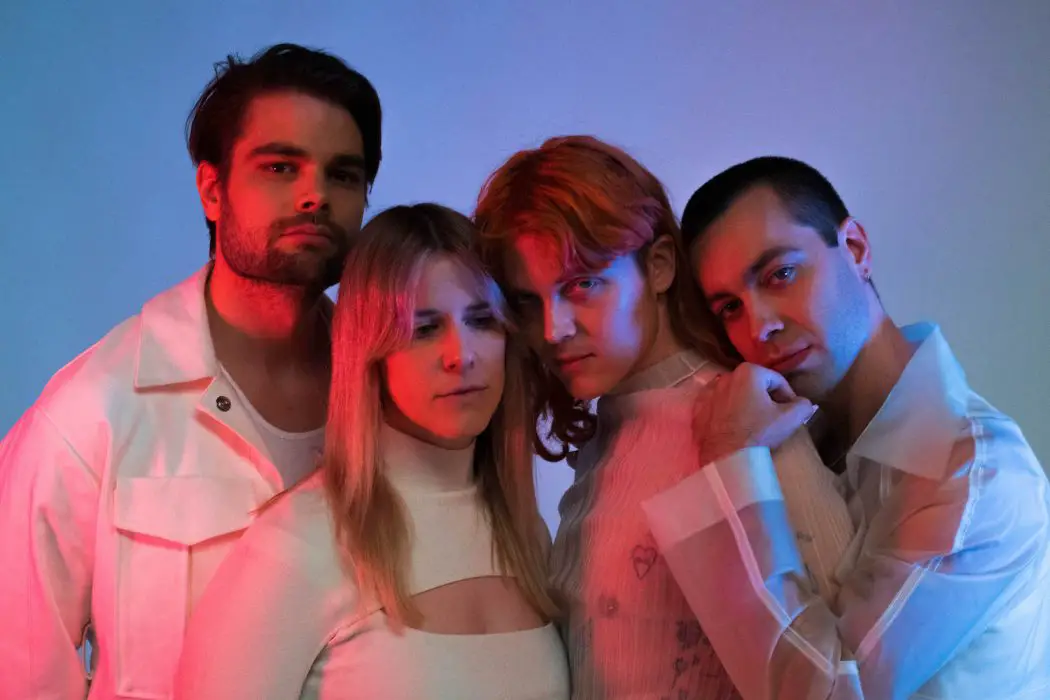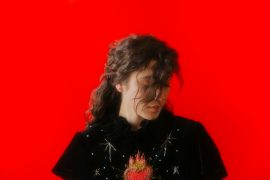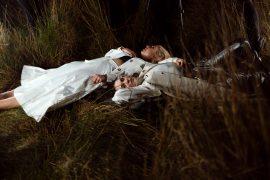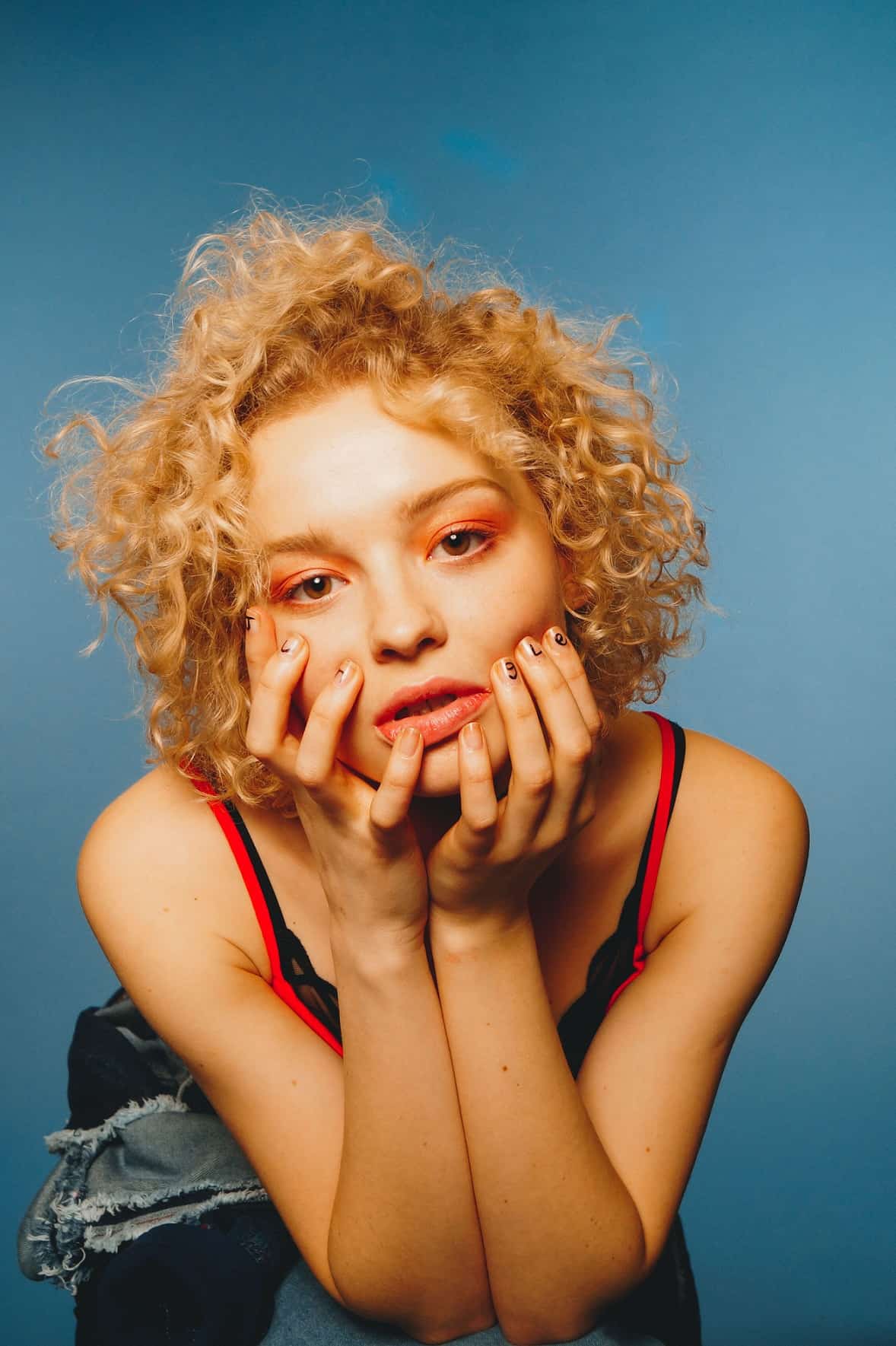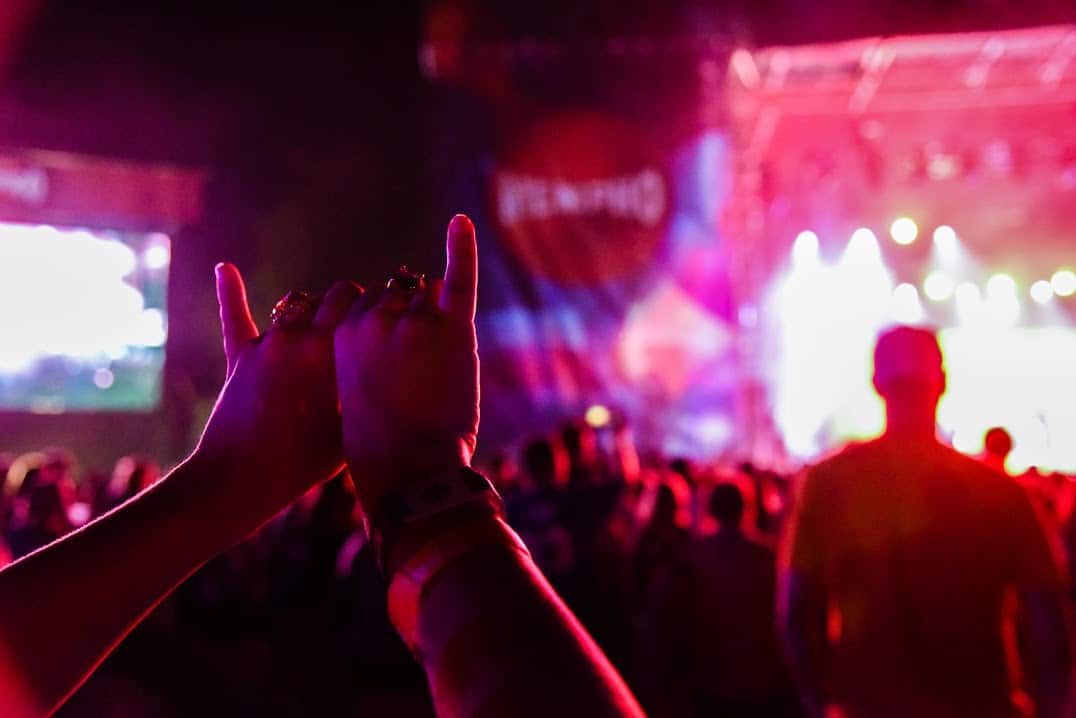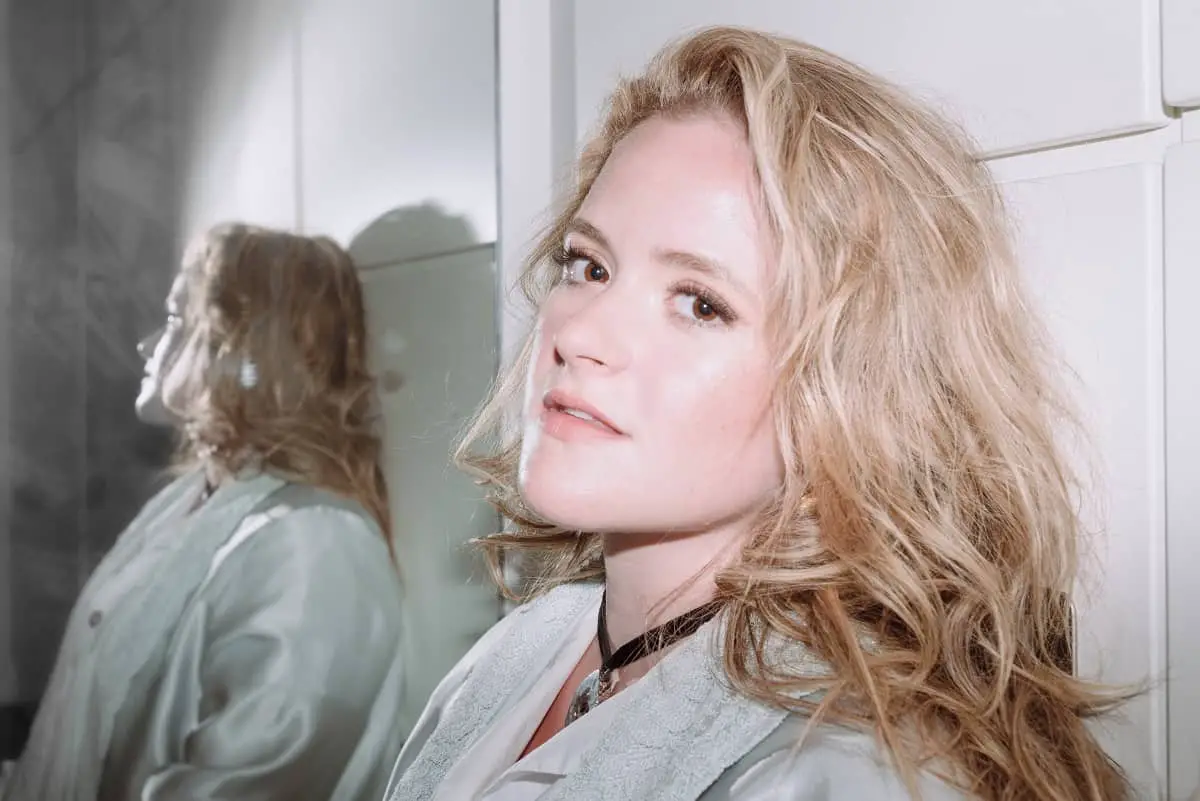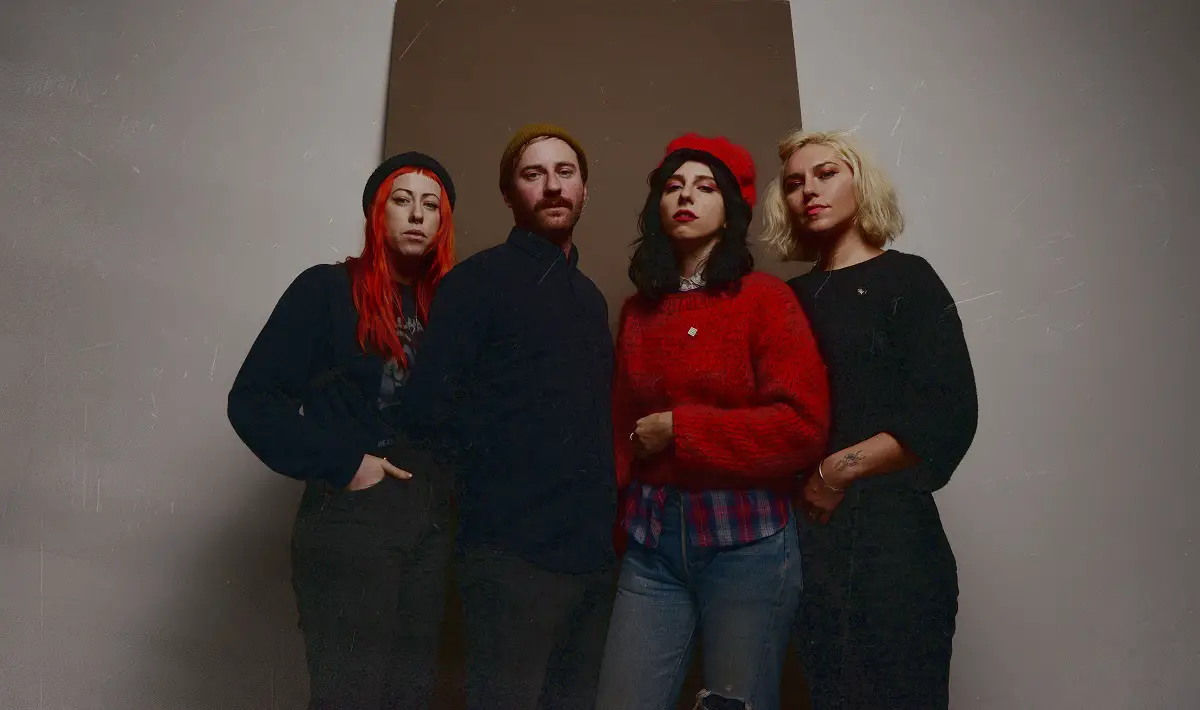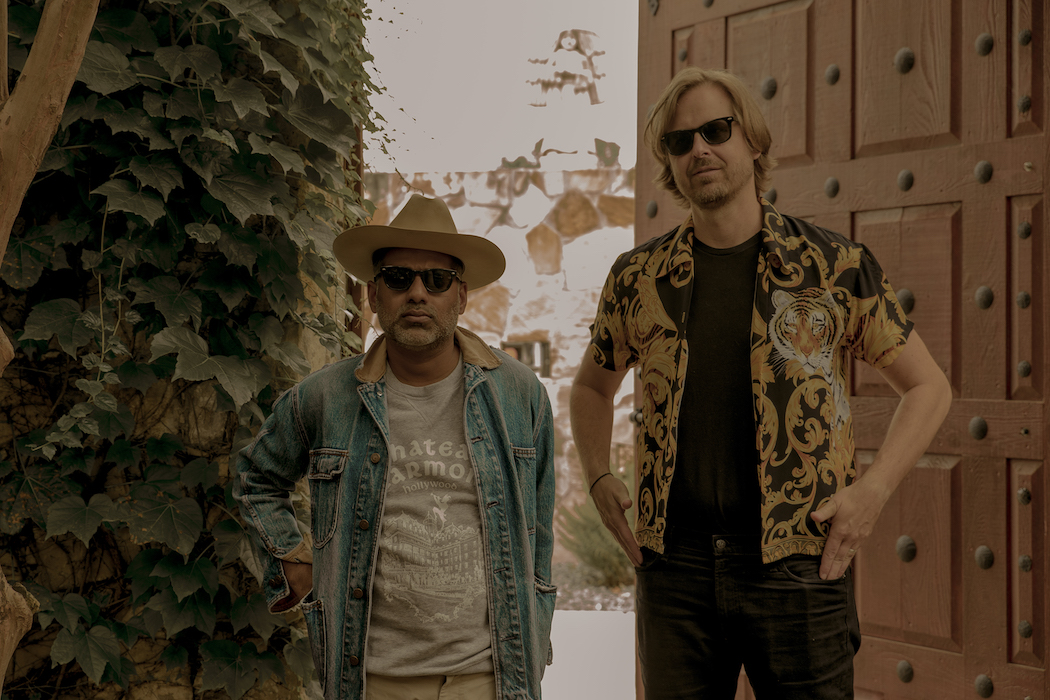Ahead of the release of their fourth studio album ‘LIKE NIRVANA’, Cub Sport’s Tim Nelson does a deep dive on catharsis, confessions, gender expression, and the self-actualization potential that comes with exploring those avenues.
Stream: ‘LIVE NIRVANA’ – Cub Sport
“The idea of Nirvana to me on this album is about an ascension from the limitations that come with trying to exert your ego over your heart”, Tim Nelson of Cub Sport reflects, sporting newly dyed orange hair and occasionally redirecting a dog or two from walking in front of the webcam. Ahead of the July 24th release of Cub Sport’s fourth studio album, LIKE NIRVANA, the Brisbane-native has enjoyed the reconnection with fans allowed by a post-pandemic reopening and the catharsis of having at last spoken life into everything that had been suppressed.
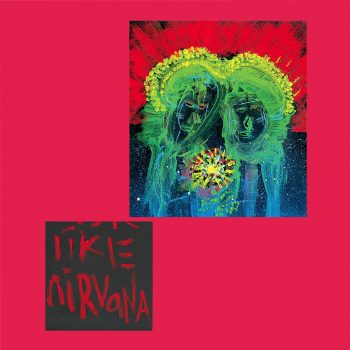
The rise of the indie-pop outfit to worldwide prominence was unique in its parallelism to the band members’ own journeys to self-realization. It wasn’t until 2016 that bandmates Tim Nelson and Sam Netterfield came out as queer and discovered their love for each other, nearly eight years in the making. Since then their music has been above all else an embracement of acceptance, self-confidence, and autonomy. It’s this unabashed assertion of authenticity that has captivated a loyal fanbase, coupled with the ethereal vocals and synth-driven sonics that propel Cub Sport’s reality-altering sonography.
On Like Nirvana, Cub Sport draws attention to the actuality that healing is not merely a process progressed by moving beyond darkness, but one that requires this darkness to be wholly recognized and felt. As such, Cub Sport delivers a work that is thematically darker and unafraid to shed any definitive characteristics of sound previously established in order to progress those themes.
Like Nirvana is out today via independent release, just one year in succession to Cub Sport’s self-titled LP. Atwood Magazine caught up with frontman Tim Nelson during a busy week of album promotion to discuss the sentiments and writing processes behind the record’s thirteen grandiose tracks.
I want to feel free to build myself around an idea that isn’t defined by other people…(it’s) something I’m still making sense of, but I feel like that’s okay. It’s good to have the freedom to explore yourself without limitations.
— —
:: stream/purchase LIVE NIRVANA here ::
A CONVERSATION WITH CUB SPORT
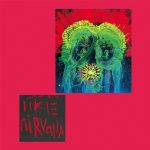
Atwood Magazine: First of all, how has quarantine been treating you?
Cub Sport: Quarantine has been a really interesting time – we had touring booked for basically this whole period and the album was going to be coming out in May. It has been interesting adjusting to a completely different lifestyle but I feel like I’ve got a lot of privilege to be able to say that I have really loved this time because I think deep down I really wanted to slow down and take a break. Obviously I wanted to keep releasing what I’ve been creating and keep pushing forward. It has had its challenges in terms of like not being able to do all the things that we wanted to do to promote this album, but in terms of how I’m feeling and nourishing my soul I think that having some quiet time without being in a different city every day has been really good for me.
And I see there’s been a hair transformation?
Cub Sport: Yeah, I decided to dye my hair orange! So in Brisbane where I am we haven’t had new COVID cases for a little while and restrictions easing we’re able to shoot a proper music video again and I had a really clear idea of what I wanted this video to look like and that included me having orange hair. So when the restrictions were lifted, and we were able to make this video, I was like, I’m just gonna do it. And it feels good. I feel like I feel like it suits this next part of the journey.
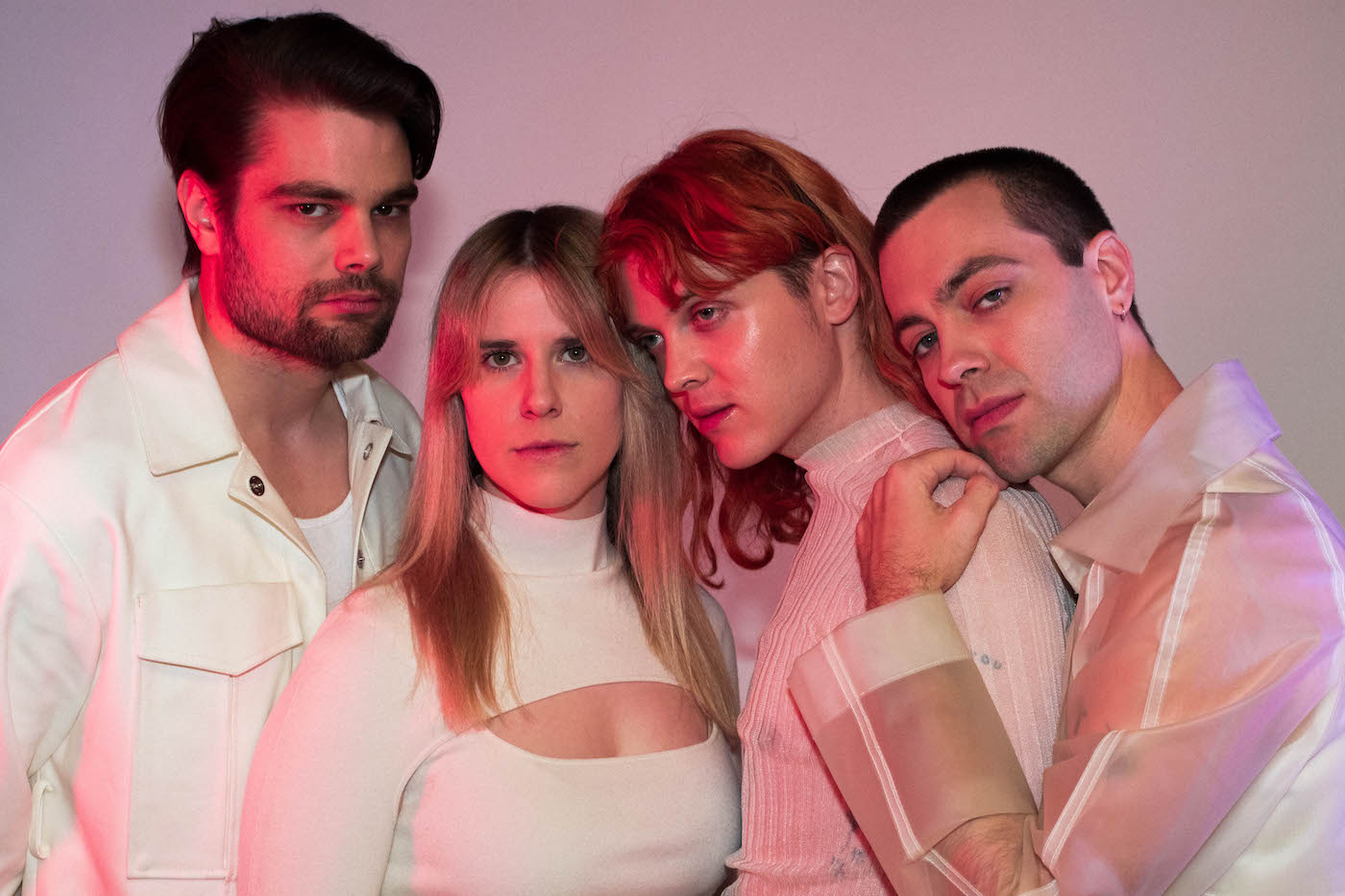
You already have a video out for this album right? For “I Feel Like I Am Changin’” – you filmed that yourselves, right?
Cub Sport: Yeah, we shot on our phones.
I feel like the homemade music video trend is one of the few good things that’s come out of quarantine. How do you feel about it in comparison with this new video in terms of being able to reach your creative potential?
Cub Sport: It’s kind of incomparable. I think that this next music video is the one that I’m the proudest of out of any that we’ve made. So many creative people have been forced to just stop during this time and I think when the opportunity to work on something again came through, there was just so much passion and excitement and I feel like you can feel the amount of thought and energy and love that went into the project. I can’t wait to share it with people.
And I saw you just had a recent launch party for the album?
Cub Sport: It was so amazing. Again, I’m so grateful to be in Brisbane where we could have that event. There’s a spot on the Brisbane River where the sun sets over the water and has a park under this enormous bridge that runs through kind of an industrial area. But it’s quite a magnificent structure. It almost reminds me of a Solange music video with these enormous cement pillars and stuff. And then with the sun setting on the water – it was such a beautiful setting to get to share the album with some super fans ahead of its release. And my family were all there and we brought Missy and Eve the dogs, so it was really special to get to share that.
https://www.youtube.com/watch?v=tHjF2dGKAuE
I also understand that you’ve been vocal about your gender expression and just general societal standards of masculinity. From listening to the album, I feel like there's some parallelism between how your sound sort begins to transcend genre in comparison to what you've put out in the past.
Cub Sport: I feel like we’re taught to box ourselves in and we’re given these labels and ideas about who or what we should be based on like our bodies or circumstances or the people around us. My gender identity and expression is something that I’m still working out because I believe that the gender binary means “this is what a man should be like” and “this is what a woman should be like”, which always made me question myself and feel shame around not being like the men that I grew up seeing glorified. So I guess I actively try to reject that and all of the ideas and expectations that come with that. I’m reluctant to say that I’m nonbinary because I do feel like a man, but I’m redefining what that means to me. I want to feel free to build myself around an idea that isn’t defined by other people. It’s a really interesting thing and something I’m still making sense of, but I feel like that’s okay. It’s good to have the freedom to explore yourself without limitations.
Going off of what you were saying about societal structures of masculinity and feelings of inadequacy surrounding that, this album definitely touches on some darker themes that we haven’t necessarily seen from you thus far. Has writing this album acted as sort of a catalyst for you to work through that healing process?
Cub Sport: Yeah, for sure. A lot of these songs delve into things that I had pushed down previously and hadn’t really wanted to acknowledge. When touring wrapped up last year and I was back home again, I had less going on to keep me busy and it felt like there was more reflection and I was starting to feel the effects of like carrying all these things without ever talking about it. I always find that when I’m writing and recording music I’m freest to express myself. When I was writing “Confessions” in particular, I was just holding the mic and saying whatever came to mind and I realized that I had articulated all of the things that had been weighing on me that I’ve been scared to say out loud. That was very much a healing process and I think that the album from start to finish feels to me like, not running from the pain of the trauma but more so acknowledging it and feeling it. By the end of the album, it lyrically and sonically feels like floating off from those feelings. It feels like kind of an ascension from the shackles of trauma and the pain of being held down.
I realized that I had articulated all of the things that had been weighing on me that I’ve been scared to say out loud.
Very cathartic I would imagine. You mentioned “Confessions” and I did want to talk about that because it's so interesting in how structurally simple it is while being very emotionally charged. You touched on it briefly, but was there truly no writing process beforehand or was all of that really rattled off on the spot?
Cub Sport: It was very much on the spot. I recorded it just here at home – I’ve got a little home studio downstairs – and I actually started the song with this kind of bell synth sound. It was quite gentle and twinkling. Then I just got the mic in my hand and pressed record and it was like a flow of consciousness. Then when I listened back to, it felt like it needed to be like gritty or something. And so I started recording that distorted guitar and it just felt right to have these super vulnerable lyrics over this harsh guitar tone, and then as the song builds with these organs and choirs and stuff underneath that. It still feels really ethereal and beautiful at the same time as being kind of harsh.
It’s interesting you mention the ethereal aspect because I wanted to talk about the title, Like Nirvana. What was the process of coming to the conclusion to title the album that way, and what is Nirvana to you?
Cub Sport: So I sent the album to one of my best friends from middle school who’s an artist and he did a bunch of paintings inspired by the album, and we ended up using those for the album art. One of the paintings was just like, red paint on a black page, and he had written out the “Like Nirvana” lyric for the song “Nirvana”. When we saw that along with the other art he had created, it just felt very connected. It really summarized what the whole album feels like to me. The idea of Nirvana to me on this album is about an ascension from the limitations that come with trying to exert your ego over your heart. I’ve often struggled with self-worth and I’ve kind of built my idea of what I’m worth based on what other people are telling me. But, I think that when you release yourself from that and find love from within, it’s a very peaceful, loving, calming feeling. That’s kind of something that I’m trying to achieve and the perspective that I’m trying to free myself from. That’s kind of what this album represents for me as well.
The idea of Nirvana to me on this album is about an ascension from the limitations that come with trying to exert your ego over your heart.
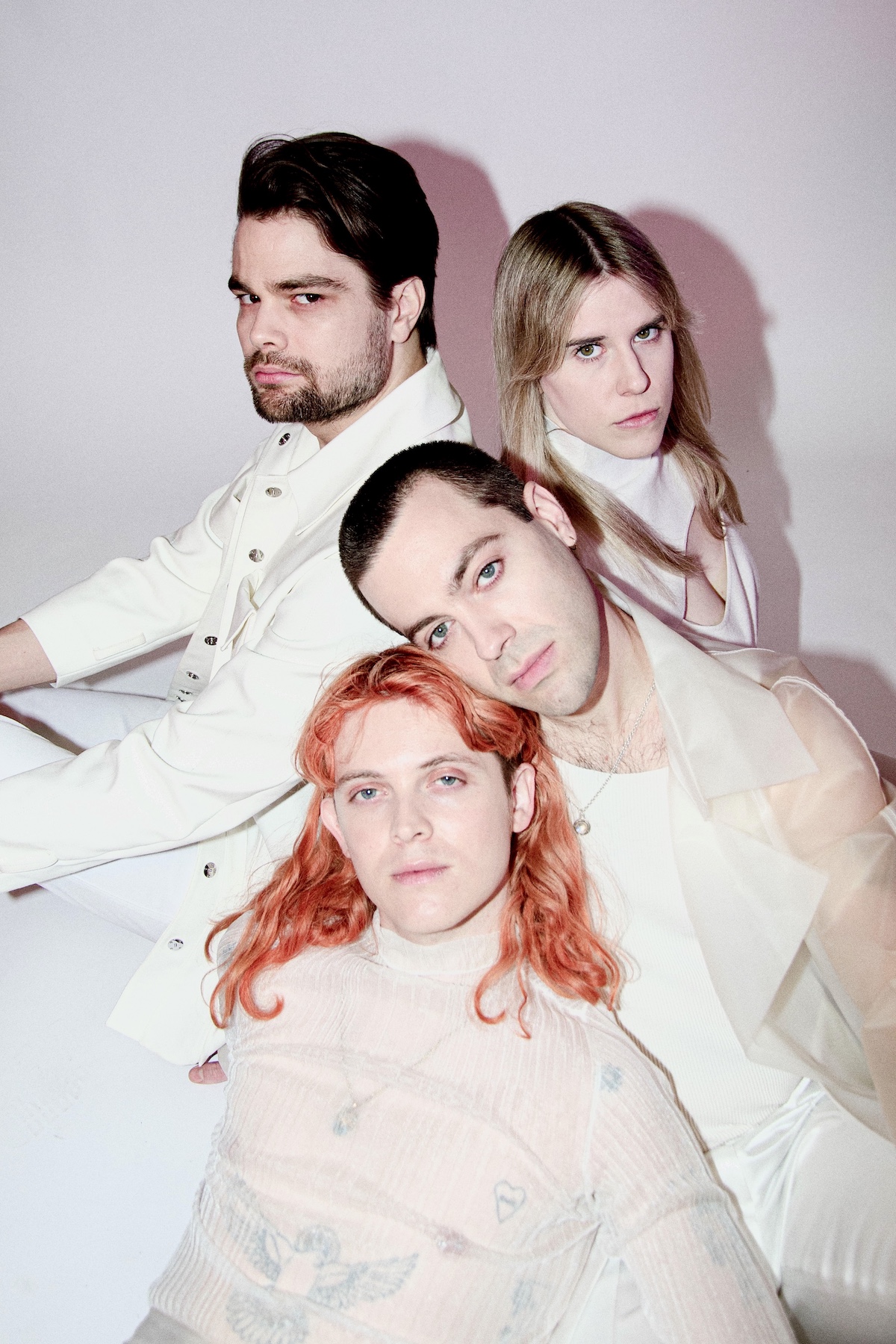
I’ve seen Cub Sport described in a lot of places as LGBT trailblazers within the music industry, which I imagine is a huge privilege but also potentially holds a lot of, not quite pressure but more so expectancy. Was there a moment where you realized that your music had a deeper impact than just sharing your personal experience?
Cub Sport: I think it was around the time that we released our second album BATS, which is the album that I wrote around the time when I was coming out. I wrote about half of it before coming out and the other half on the other side. And that was the first time that I had really opened up and been forthcoming with my own journey with realizing that I’m queer and coming to terms with that. At that point, I started getting messages from people saying like, “Thank you for being open about your own journey” and how it was helping people accept themselves and have pride in who they are. In some instances people would say that it had literally saved their lives, and I think that that was the point that I realized that it’s so much more than just recording music – It’s something that has the power to transform someone’s life. We’ve built a really special community now around Cub Sport and I think we’ve got a really beautiful fanbase who encourage and support each other. Cub Sport fans are my favorite people in the world. Even five years ago, the idea of somebody knowing that I was queer was like, my greatest fear, and I feel like if I had seen more queer artists when I was younger I would have found it so much easier to accept who I am. So it’s very special to be able to contribute to that now.
I think that was the point that I realized that it’s so much more than just recording music – It’s something that has the power to transform someone’s life.
That's amazing to hear. I also wanted to talk about “Break Me Down” - can you tell me a bit about what it was like working with Mallrat?
Cub Sport: Grace and I are really good friends and we’ve worked on music together before, and we recorded that song here at my home studio. We went into it with no pre-conceived ideas about what the song would sound what we wanted it to be like. We were kind of just in the flow of it – and then the freestyle ended being eight or nine minutes and it was really hard to trim it down. We brought it down to like seven minutes and it just feels very special. There’s a really unique energy to that song. And Mallrat is one of my favorite artists ever, so it was it was really amazing getting to work with her. She’s a really talented producer and writer.
Were you a fan of her before you became friends?
Cub Sport: We met in 2015 at while playing at this college thing, and it was maybe my least favorite show I’ve ever played. But Grace came up afterwards and she asked for recommendations for a guitar teacher, and we gave her that and then she started getting into music herself. When she started to put music out and we were like, oh my goodness, she’s really good! I’ve just become more and more obsessed over the years.
So something else I was really intrigued by was the fact that you’re self-managed and act as your own label, which is pretty uncommon at your stage. What prompted that choice and how has it affected your career thus far?
Cub Sport: So when we first started the band, we were self-managed and independent, and then around the time of putting out a second EP, we started getting interest for international partners and we felt like we should bring on management to help navigate that. We ended up signing a record deal and had a whole team working on our debut album, but it kind of felt like there was a bit of a disconnect. I think that was largely because I had a disconnect with myself with not being out yet, and I was kind of scared to talk about what I stood for. So for our second album, which felt just so, so personal that it needed to be handled with care, we decided that we’d go back to being self-managed and put it out independently through our own label. So we did that, and it felt really good. It’s the freedom to be able to follow-up with every decision and be able to communicate our own message and choose the teams that we work with. I think it’s really powerful having it all coming from us because we have very specific ideas about how we want things to go. All four of us in the band also have skillsets that are so different from each other, and I think those combined strengths make this possible. It’s a lot of work, but we do really enjoy it.
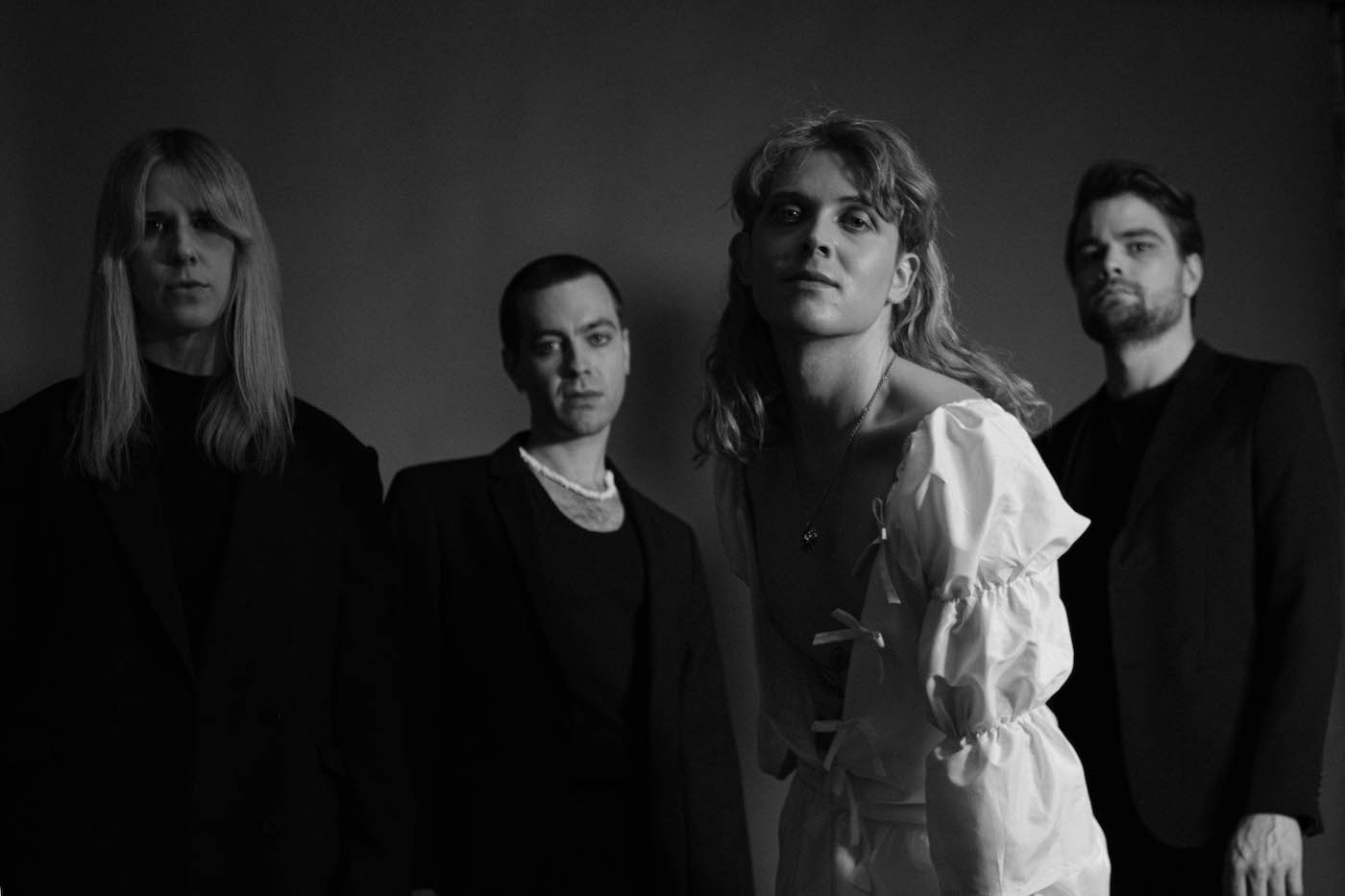
So I’m trying to keep my spirits up lately in the absence of live music by giving myself things to dream about for when it comes back – there’s already been some talk of 2021 Cub Sport shows, so what can your fans expect from you on stage when that day comes?
Cub Sport: It’s really hard to know when we will actually be back on the live stage, but we’ve actually shot a video of us playing the album start to finish in the studio. Even though there’s no audience, I feel like part of the magic of a show was definitely there and that’s a feeling that I’ve really missed. I feel like it’s the closest that we can get to like an actual concert. This new album feels so good to play live as well – like some of my favorite songs that I’ve ever written to sing live. And yeah, we will be back in the US touring as soon as we can – we love touring there and we love our American fans so much.
I’ve asked this to other musicians before because I’m genuinely curious about your perspective as a musician and I think it’s helpful for music fans to hear – with relevance to everything that’s happening in the music industry as a result of COVID-19, what can our readers be doing, what can music fans be doing, and what can your fan’s especially be doing to keep momentum and excitement up in an industry that really relies on unity?
Cub Sport: I feel like being COVID-responsible is a really obvious one because the more people who wear masks and socially distance and take every measure possible, the sooner we’ll be able to get our industry back up and running. In the meantime, I would say actively try to connect with the creatives who inspire you and of course keep creating. Keep reaching out to collaborate with other creative people in new ways. I think it has been really beautiful to see the way that so many creative industries have sort of shifted and found new ways to create art. It’s really important to keep doing what brings you joy.
When you release yourself from that and find love from within, it’s a very peaceful, loving, calming feeling.
— —
:: stream/purchase LIVE NIRVANA here ::
— — — —

Connect to Cub Sport on
Facebook, Twitter, Instagram
Discover new music on Atwood Magazine
? © James Caswell
:: Stream Cub Sport ::

